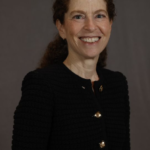Dr. Fraenkel: Yes, this was critical for my career. I continue to be passionate about this not only because I experienced it myself, but I think all junior faculty feel this way. As an investigator dependent on grant funding, you are worried about whether or not you can succeed. That is stressful on multiple levels: on an academic level (Are you going to be able to do this?) and on a financial level (Can you secure funding?) At that time in my career, I was seeing people who I admired and respected apply to the NIH, get phenomenally good scores and then not receive funding. That is very discouraging. I also remember feeling, with the Foundation, that if I do my job right and write a good grant, there’s a really good chance I’m going to get funded. That was critical to being willing to pursue this path.
TR: During the past year, the Foundation delineated its strategic plan, focusing on three major areas: building the workforce, fostering innovation and collaboration, and leveraging relationships. Is there one of these areas that is especially close to your own heart?
Dr. Fraenkel: I would say the two major aims—to train rheumatologists so our patients have a doctor to go to, and to make sure we’re supporting research so the doctors they’re going to have the best possible solutions for them. I am also very interested in increasing awareness of the Foundation, which will lead to supporting most of the strategic plan goals.
It’s unclear to me why we don’t have one thousand percent support by all our members. To me, it’s a slam dunk: If you know the Foundation and their values and their mission, why would you not be supporting them? We are working hard to better disseminate the wonderful work the Foundation is doing.
TR: What do you see as the near-term and future obstacles for growing the workforce and increasing research, and how is the Foundation addressing these?
Dr. Fraenkel: Clearly, access to enough physicians is a big deal. The Foundation and the ACR are working together on improving the pipeline and thinking outside of the box to ensure that our patients have access to rheumatology professionals. For example, just last year we had a [Notice of Special Interest] on telemedicine, which can lead to a new pathway of care delivery.
We also need to make sure that we remain at the forefront of discovery. The Foundation is very focused on our research portfolio, which continues to grow. This brings up the other thing that I love about the Foundation: It’s flexible. We’re constantly taking the pulse of what needs to be done now. It’s a foundation that listens and acts and is responsive to the community.



